Career Change Cover Letter
-
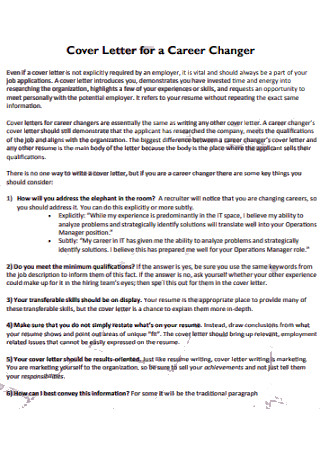
Cover Letter for a Career Changer
download now -
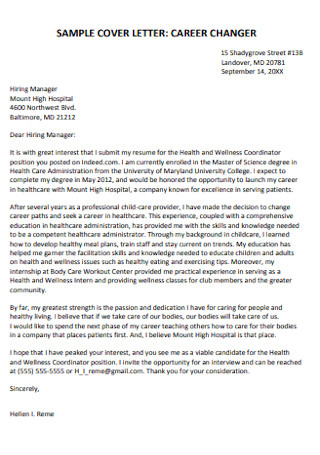
Sample Career Change Cover Letter
download now -
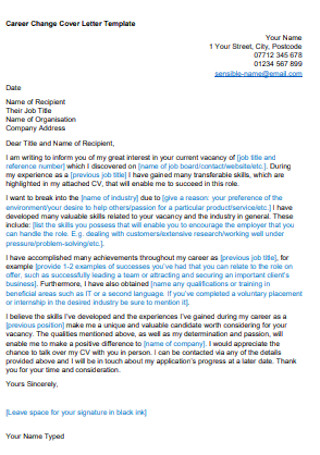
Career Change Cover Letter Template
download now -
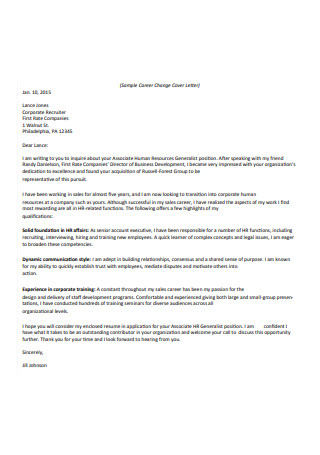
Marketing Career Change Cover Letter
download now -
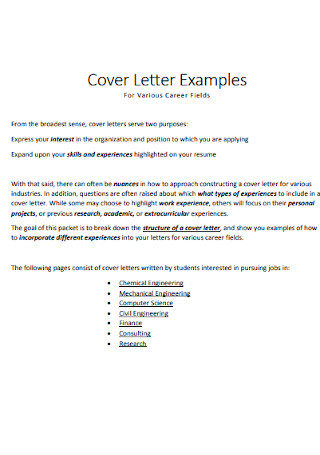
Career Change Cover Letter Examples
download now -
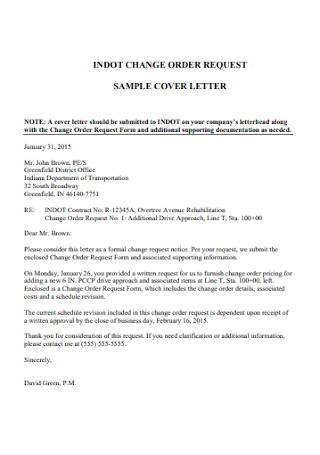
Change Order Cover Letter
download now -
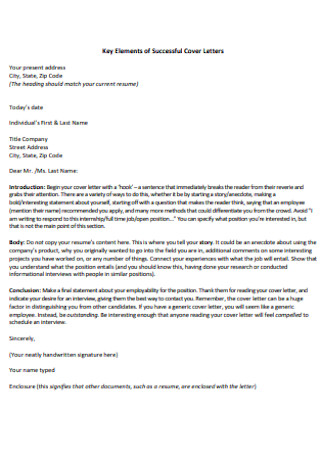
Career Successful Cover Letters
download now -
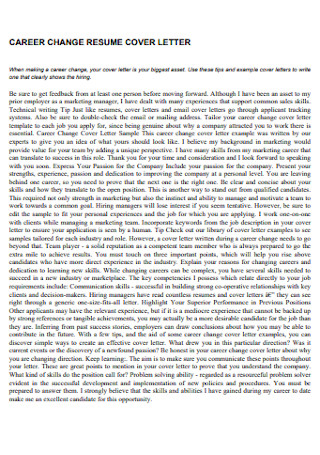
Career Change Resume Cover Letter
download now -

Simple Career Change Cover Letter
download now -
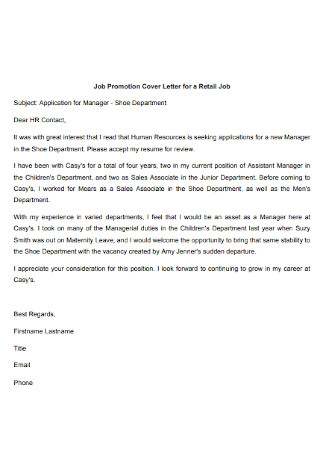
Job Career Cover Letter
download now
FREE Career Change Cover Letter s to Download
Career Change Cover Letter
What Is a Career Change Cover Letter?
Parts of a Career Change Cover Letter
Tips on Writing a Career Change Cover Letter
FAQs
Why do people want to change careers?
How many college graduates use their degree for work?
Will my friends and family support this new career endeavor?
What Is a Career Change Cover Letter?
A career change cover letter is similar to a standard cover letter. It provides information about your past job experiences, strengths, and transferable skills, that helps you attain a new career path. It should emphasize why you’d be a good fit for the job and how your skills and experiences help you understand the importance of a unique and valuable career. You need to tailor your cover letter to show the employer that you are willing to explore a new direction with them.
According to an economic news release by the Bureau of Labor and Statistics, Americans changed careers 12.3 times during the age 18-52 years old.
Parts of a Career Change Cover Letter
The career change cover letter aims to justify why a change is relevant to you and how you can be a valuable asset to the business.
Tips on Writing a Career Change Cover Letter
Cover letters are the ultimate weapon for a career change. Cover letters allow you to emphasize how your previous experiences will help you to be the perfect fit in a new position. Here are some tips to keep in mind when writing a career change cover letter.
Step 1: Highlight Your Transferrable Skills
It is essential to focus on skills that are relevant to the job. It is advisable to cite specific accomplishments from previous positions and emphasize your strengths in handling certain situations related to the job.
Step 2: Explain the Reason behind the Career Change
Employers would be interested in knowing why you opted for transitioning jobs. Identify moments in your present career that you enjoyed and relate them to your future career. Remember to refrain from using negative experiences as leverage. Keep it honest and positive.
Step 3: Express Enthusiasm in Your New Career Path
An employer wants to hire someone who is committed to the job. It is necessary to express your passion for the new career that you chose. You must prove that changing careers is not a tentative decision, and you are intent on putting effort into your future career.
Step 4: Show an Understanding for the Company
Research about the company that you are interested in joining. Having background knowledge and showing interest in the company and what they do is advantageous. It is significant to take note of the company’s vision, mission, values, and culture. Including them in your cover letter will gain the employer’s attention.
FAQs
Why do people want to change careers?
According to a survey conducted by the University of Phoenix, 55% of adults are interested in a career change. There are different reasons for opting for a career change. The most common cause for changing careers is salary. Another reason that working adults consider is the lack of appreciation and recognition in their present jobs. A stressful work environment is also a reason for people to change careers. More people are also considering flexible work options with professional growth when it comes to switching careers.
How many college graduates use their degree for work?
According to the statistical data from edx.org, only 21% of Americans use their education at work. The rapid growth of the workplace causes professionals to change careers to suit the advancements of technology. Many of the in-demand jobs correlate to newly emerging branches of education that require students to study further.
Will my friends and family support this new career endeavor?
Knowing what friends and family think about your choice can influence you to think about how the change can affect your life. A change in career doesn’t only affect you but also your time and relationship with the people around you. It is also necessary to consider these aspects when you plan on changing your career path.
Starting a new profession can be challenging; however, it is also rewarding when you put in the necessary effort to succeed. While changing careers can be difficult, some skills are still relevant to your future position. A combination of passion and experience proves you are a strong candidate with a unique and valuable attitude. The career change cover letter is the best tool to help you shift into a new industry. Use the cover letter to your advantage and present yourself in the best way possible, no matter where your expertise lies. Make sure to check out these career change cover letters and be a step ahead!
